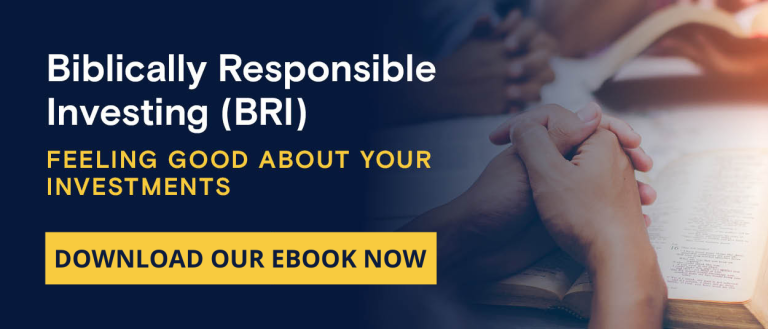How to Plan a Purposeful and Comfortable Retirement in San Antonio

Think of the effort, time, and focus it’s taken you to either be ready to retire, or if you recently passed this milestone. You’ve diligently saved and invested for decades to retire in comfort while living a values-driven life with purpose and stewardship. It can be an exciting time and a new chapter lasting three or more decades.
On the other hand, retirement can also be a time of uncertainty for many, as you ask yourself questions like:
- Given the risk of being retired 30 years or more, how can I ensure my savings will last throughout my entire retirement for both spouses?
- What strategies can I use to manage the potentially high costs of healthcare, including long-term care, that might not be fully covered by insurance or government programs?
- How will inflation affect my retirement savings, and what can I do to maintain my purchasing power over time?
- How can I protect my retirement portfolio from severe market downturns or other economic uncertainties?
- What should I consider regarding the future of Social Security benefits, especially concerning potential insolvency or policy changes that impact younger retirees?
In this Quick Guide, we’ll explore various strategies for creating a retirement that balances financial security and comfort with purpose, using biblical wisdom as your foundation.
Chapter 1: Transitioning to Retirement in San Antonio
Chapter 2: Building a Legacy with Purpose
Chapter 3: Faith-Based Financial Planning
Chapter 4: Addressing Financial Challenges in Your 50s and 60s
Chapter 5: Aligning Values and Wealth
Chapter 6: Why Partner With a BRI Financial Advisor
Transitioning to Retirement in San Antonio
 Proverbs 21:5 says, “The plans of the diligent lead surely to abundance, but everyone who is hasty comes only to poverty.” Thoughtful planning can help ensure a smooth transition into a new chapter of your life.
Proverbs 21:5 says, “The plans of the diligent lead surely to abundance, but everyone who is hasty comes only to poverty.” Thoughtful planning can help ensure a smooth transition into a new chapter of your life.
Here are a few things you can do to prepare for a transition from working years to retirement years:
- Calculate your retirement needs, including income sources like pensions, Social Security, savings, and investments. Use tools or consult an experienced advisor to understand how long your savings will last.
- Develop a retirement budget that reflects your expected income versus your living expenses. Make sure you consider fixed and discretionary spending.
- Include a goal of reducing or eliminating all forms of debt before retirement to lessen pressure on your income to pay down debt after you are retired.
- Understand Medicare and consider additional coverage, such as supplemental or long-term care insurance. Evaluate your health expenses now and project them into the future. Family genetics can play a part in this calculation.
- Shift your investment strategy to focus on capital preservation and income generation while considering inflation protection.
- Learn when to start taking Social Security benefits to maximize your lifetime benefits, considering your health, other income sources, and expected longevity.
- Update or create wills, powers of attorney, and healthcare directives, and consider how you want to pass on your legacy, not just financially but also in terms of beliefs and values.
- Plan for new activities, hobbies, or volunteer work to replace the structure and social interaction of work. Consider joining clubs or groups.
- Transition out of full-time work gradually through part-time work or consultancy to ease into a retirement lifestyle and maintain a source of outside income.
- Consider changing your lifestyle—whether downsizing, relocating, buying a second home, or staying put—to match your retirement budget and lifestyle needs and preferences.
Podcast Alert!: “Patience Pays! Avoiding Costly Investment Mistakes”
Building a Legacy with Purpose

A purposeful legacy is about more than wealth—it’s about passing on beliefs and values that reflect your faith. Proverbs 13:22 reminds us, “A good person leaves an inheritance for their children’s children.”
Building a legacy begins with estate planning. This includes drafting a will, establishing trusts, and assigning powers of attorney. However, legacy planning should also involve conversations with family about your intentions, beliefs, and hopes for the future.
Consider having a family meeting with heirs to discuss your financial and spiritual goals. Share the principles guiding your decisions and how you’d like them carried forward after you and your spouse are gone.
Your estate plan should use various tax-efficient options to make sure your family receives the most benefit from your hard-earned wealth. Some tax-efficient strategies include:
- Using Qualified Charitable Distributions (QCDs) from IRAs allows you to support your favorite organizations while reducing taxable income.
- Use donor-advised funds to make lump-sum donations while maintaining the flexibility to distribute funds to charities over time.
- Consider gifting appreciated assets, such as stocks, to avoid capital gains taxes while supporting a cause you care about.
- Establish a Donor-Advised Fund (DAF) to make charitable contributions, receive an immediate tax deduction, and then recommend grants from the fund over time.
- Donate to a Charitable Remainder Trust (CRT) by placing assets in a trust, receiving income for a set period, and then having the remainder go to charity while providing tax benefits and income during your lifetime.
A San Antonio financial advisor can help you sort through various financial strategies to ensure your family's needs and charitable goals are being met.
Listen to our newest podcast: “2025 Financial Convictions: Preparing for the Year Ahead”
Faith-Based Financial Planning
 Faith is a cornerstone for many families in San Antonio that guides decisions about money and stewardship. Psalm 24:1 reminds us, “The earth is the Lord’s, and everything in it, the world, and all who live in it.”
Faith is a cornerstone for many families in San Antonio that guides decisions about money and stewardship. Psalm 24:1 reminds us, “The earth is the Lord’s, and everything in it, the world, and all who live in it.”
Faith-based financial planning in San Antonio integrates spiritual priorities with practical goals. This might involve ethical investing, budgeting for tithing, or creating a charitable giving plan that supports family and community.
Think about the following tactics you can use to align your investment and savings strategies with your faith:
- Include biblically responsible investments (BRI) that align with your values, such as funds prioritizing faith-based causes. Consider working with a financial planner who uses BRI principles.
- Set up a giving plan to ensure tithes and charitable donations are included in your retirement budget.
Addressing Financial Challenges in Your 50s and 60s
 Ecclesiastes 3:1 says, “There is a time for everything and a season for every activity under the heavens.”
Ecclesiastes 3:1 says, “There is a time for everything and a season for every activity under the heavens.”
As you near retirement in your late 50s and early 60s, the decisions you make in these years can profoundly influence your quality of life once you are retired, so it's imperative to address them upfront and proactively.
Following are five important financial tactics you can use if you are in your 50s or 60s to better prepare for a successful retirement:
- If you are behind on retirement savings, you can leverage catch-up contributions to your 401(k) and IRA. In 2025, the catch-up contribution limit for IRAs remains at $1,000, while for 401(k) s, it's $7,500 for those aged 50-59, and $11,250 for those aged 60-63.
- As we age, we more than likely will experience a need for increased healthcare services, which equates to more expenses. That’s why ensuring you have accounted for expected and unexpected healthcare costs is critically important. Understand what Medicare and supplemental insurance (like Medigap or long-term care) will cover to ensure proper coverage so you don’t have to invade your retirement principle.
- Deciding when to start taking Social Security benefits is a critical decision. You need to weigh the benefits of early retirement with reduced payments against waiting until full retirement age or delaying payments for increased benefits.
- As retirement approaches, you should reassess your investment portfolios, potentially moving towards more conservative selections to protect savings from market volatility while allowing for some growth to combat inflation. This shift must balance risk and reward appropriately for one's retirement timeline.
- Entering retirement debt-free or with a plan to manage any future debt is essential to ensure retirement income can be used for living expenses rather than debt repayment. This might involve strategies like downsizing, refinancing, or aggressive debt payoff before retirement.
Each of these issues requires thoughtful planning, often with the assistance of San Antonio financial advisors, to ensure a secure and comfortable retirement.
Aligning Values and Wealth
 Aligning your financial decisions with your faith ensures your wealth reflects your values. Matthew [6:21] reminds us, “For where your treasure is, there your heart will be also.”
Aligning your financial decisions with your faith ensures your wealth reflects your values. Matthew [6:21] reminds us, “For where your treasure is, there your heart will be also.”
Here are a few tactics you can employ in your 50s and 60s to ensure your values remain aligned with your investment strategies, particularly in the context of Biblically Responsible Investing (BRI):
- Before you can align your investments with your values, you need a clear understanding of what those values are. For BRI, this means identifying which biblical principles you want to uphold in your investments. This could include avoiding companies involved in activities like abortion, pornography, gambling, tobacco, or those that do not respect life, family, or stewardship of the Earth. Consider consulting biblical texts, religious leaders, or faith-based financial advisors to refine your value framework.
- Use or develop a robust screening process to filter out companies or funds that do not align with your biblical values, or you can use the services of a San Antonio CFP ® to assist in this vetting process. This involves negative screening (excluding companies involved in objectionable business practices) and positive screening (selecting companies that actively promote or live out biblical values). Tools like mutual funds or ETFs focusing on BRI can help, but always review their criteria and past investments to ensure they match your values.
- While maintaining your ethical standards, diversification remains crucial for risk management. Look for opportunities in various sectors where companies adhere to BRI principles. This might include sectors like healthcare (focusing on companies that promote life and health), technology (ensuring companies respect digital ethics), or consumer goods (companies that uphold family values). Diversification here means balancing across industries that resonate with your faith-based values.
- Values and corporate behaviors can shift over time. Regularly review your investment portfolio to ensure it continues to reflect your current values. This might mean divesting from companies that have changed their practices or have new products/services that conflict with BRI. Also, as you approach or enter retirement, rebalancing might involve adjusting your risk profile while maintaining alignment with your values, perhaps by moving towards more stable, value-aligned investments like bonds from ethical companies.
Why Partner with San Antonio CFPs ®?
Partnering with PAX Financial Group for your retirement planning in San Antonio offers several important, hi-value advantages:
- Our team includes San Antonio-based CERTIFIED FINANCIAL PLANNERS (CFPs®) experienced in BRI retirement planning.
- Our unique PIVOT retirement system is tailored to help you transition into retirement seamlessly, focusing on financial readiness and emotional and physical well-being.
- With a commitment to fiduciary responsibility, our San Antonio CFPs® provide personalized advice that reflects your values and goals as you pursue a fulfilling and financially secure retirement.
- Our holistic approach distinguishes us from other retirement planning providers.
Ready to learn more about our retirement planning services? Connect with us today.

